In today’s global economy, freight forwarding is an essential service that enables businesses to efficiently transport goods across international borders. Acting as intermediaries between shippers and transportation services, freight forwarders navigate the complexities of logistics, ensuring timely delivery while managing the intricacies of customs regulations, insurance, and documentation. This guide delves into the fundamental aspects of freight forwarding, highlighting the key services provided, the importance of choosing the right partner, and the steps to optimize your shipping strategy, particularly when importing goods from China. Whether you are a seasoned importer or just starting out, understanding the nuances of freight forwarding can significantly enhance your operational efficiency and contribute to your business’s success in the competitive global marketplace.
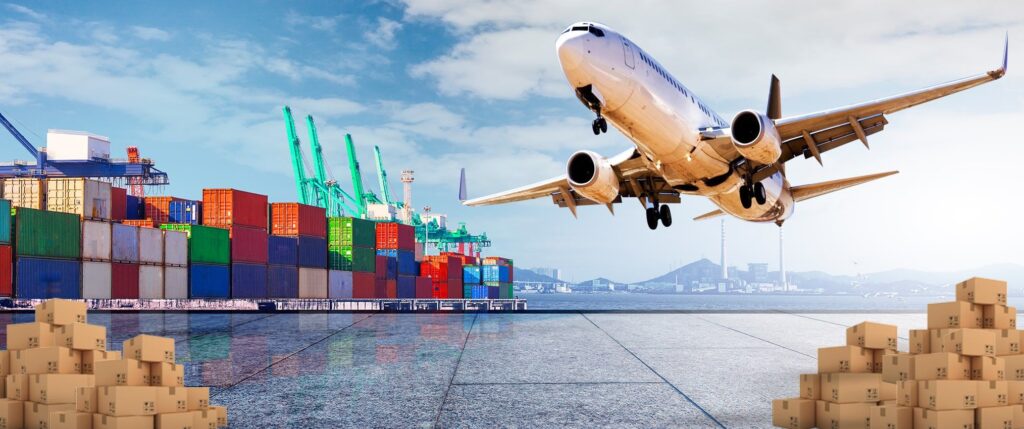
Understanding Freight Forwarding: What You Need to Know
At its core, freight forwarding is the act of organizing the shipment of goods on behalf of a client. A freight forwarder acts as an intermediary between the shipper and various transportation services, negotiating the best routes and rates to ensure timely delivery. The complexity of international shipping demands knowledge of numerous regulations, tariffs, and logistics, which is where freight forwarders bring their expertise to the table.
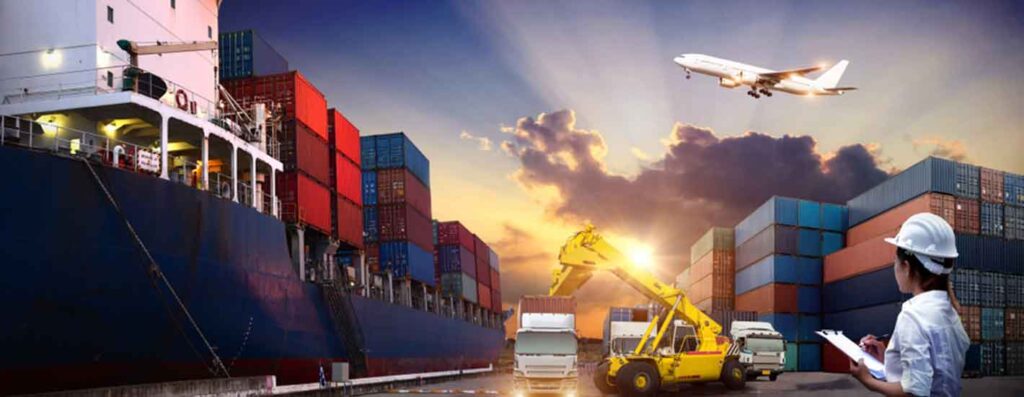
Key Services Offered by Freight Forwarders
Freight forwarders offer a comprehensive suite of services that go beyond simple transportation. Here are some essential services provided by freight forwarders:
- Logistics Management: Coordinating the entire supply chain process to ensure effective and efficient movement of goods.
- Customs Clearance: Navigating the intricate customs regulations to ensure that shipments clear borders smoothly and efficiently.
- Insurance Services: Offering protection against potential losses or damages during transit, which is vital for managing risk.
- Warehouse Services: Providing storage solutions for goods, enhancing flexibility for businesses as they manage inventory.
Types of Freight Forwarding Services
Understanding the types of freight forwarding services available is crucial for selecting the right option for your business needs. The major categories include:
- Air Freight: Fast and efficient for time-sensitive shipments, air freight services are ideal for high-value goods.
- Ocean Freight: A cost-effective solution for bulk shipments, ocean freight is the most common method used for importing from China.
- Door-to-Door Shipping: Providing a seamless experience from the point of origin to the final destination, making it convenient for businesses to manage their logistics.
The Role of Technology in Freight Forwarding
Technological advancements have significantly transformed freight forwarding. Utilizing software and digital platforms allows for real-time tracking of shipments, enhancing transparency and communication between all parties involved. This technological integration not only streamlines the logistics process but also improves efficiency and reduces costs.
Importance of Choosing the Right Freight Forwarder for Your Business
Selecting the right freight forwarder is a strategic decision that can significantly impact your business operations. The choice of partner can influence everything from delivery times to overall costs, making it essential to consider various factors.
1 Expertise and Experience
A freight forwarder with substantial experience in the industry will possess a deep understanding of international shipping regulations, customs requirements, and logistical challenges. This expertise is invaluable in navigating the complexities of shipping goods, particularly from countries like China. When selecting a freight forwarder, evaluate their track record and industry reputation.
2 Cost-Effectiveness
While price should not be the sole determining factor, it is essential to consider the cost-effectiveness of the services offered by a freight forwarder. A reliable forwarder will provide transparent pricing structures and help you choose the most economical shipping methods that fit your timeline and budget. Comparing quotes among different providers can yield substantial savings.
3 Customized Solutions
Each business has unique logistics needs. A competent freight forwarder should be able to tailor their services to meet your specific requirements. Whether you require Door-to-Door Shipping, Customs Clearance, or specialized handling for sensitive cargo, the right freight forwarder will adapt to your needs, providing a personalized approach.
4 Reliability and Communication
The reliability of a freight forwarder is paramount, as delays in shipping can have substantial repercussions on your business. Assess their communication practices—regular updates and proactive problem-solving are essential for effective logistics management. An ideal freight forwarder will maintain open lines of communication, ensuring you are informed throughout the shipping process.
5 Regulatory Compliance
With the constantly evolving landscape of international trade regulations, having a freight forwarder who is knowledgeable about compliance matters is crucial. They should stay updated on changes in customs laws, tariffs, and export regulations, helping you avoid costly penalties or shipment delays.
6 Recommendations for Freight Forwarders
Among the numerous options available, Dantful International Logistics stands out as a highly professional, cost-effective, and high-quality provider of one-stop international logistics services. Dantful offers tailored solutions to meet the unique needs of businesses importing goods from China, ensuring smooth customs clearance, effective communication, and comprehensive support throughout the entire shipping process.
Read More:
- Shipping From China to the United States
- Shipping From China TO CANADA
- Shipping From China To Netherlands
- Shipping From China To UNITED KINGDOM
- Shipping From China To ALGERIA
- Shipping from China to UAE
- Shipping from China to Saudi Arabia
Step 1: Identifying Your Shipping Needs
The first step in the freight forwarding process is to clearly identify your shipping needs. This involves a thorough assessment of various factors that can impact how efficiently and effectively your goods are transported. Understanding these elements ensures you select the most suitable logistics solutions for your business.
Determining the Type of Goods to Ship
The nature of the goods you intend to ship plays a crucial role in defining your logistics strategy. Different items may have unique requirements based on their physical and regulatory characteristics. Consider the following:
- Classification: Identify whether your goods fall into categories such as hazardous materials, perishables, or machinery. Each classification may require specific handling, documentation, and compliance with regulations.
- Value and Sensitivity: High-value or fragile items may necessitate additional protective measures, including specialized packaging or more stringent insurance coverage.
- Regulatory Compliance: Certain goods may be subject to import/export restrictions or require specific documentation for customs clearance. Familiarizing yourself with these requirements is essential to avoid delays or penalties.
Assessing Volume and Weight Requirements
Understanding the volume and weight of your goods is vital for effective logistics planning. Accurate assessment will influence both the choice of shipping method and cost calculations. Key considerations include:
- Volume: Calculate the total cubic volume of your shipment, as this can affect the mode of transport. Ocean freight, for example, often operates on a per cubic meter basis.
- Weight: Weight is another critical factor; heavier goods may incur higher shipping costs, particularly with air freight. Depending on your shipment, the freight forwarder will often consider either the actual weight or the volumetric weight (dimensional weight), whichever is greater, when determining costs.
- Load Type: Determine whether you will be shipping full containers (FCL) or opting for less-than-container load (LCL) services. LCL can be more economical for smaller shipments, while FCL may be beneficial for larger loads.
Choosing the Appropriate Shipping Method (Air vs. Sea)
When planning your logistics, choosing the appropriate shipping method is essential for balancing speed and cost. Here’s how to approach this decision:
-
Air Freight: Ideal for time-sensitive shipments, air freight is the fastest method for transporting goods. However, it typically incurs higher costs compared to sea freight due to fuel, handling, and airport fees. This method is ideal for high-value items or urgent deliveries.
-
Sea Freight: This method is more cost-effective for larger volumes of goods. While it takes longer than air freight, sea freight is suitable for bulk shipments and can significantly reduce transportation costs. Additionally, sea freight has a higher capacity for larger cargo, making it a preferred choice for many businesses importing from China.
-
Hybrid Solutions: Depending on your shipping requirements, a combination of air and sea freight could be considered. For example, sending perishable items by air while using sea freight for non-perishables can optimize costs and delivery times.
Assessing these aspects will lead to a well-informed decision that aligns with your business needs and budget considerations.
Step 2: Researching Potential Freight Forwarders
Once your shipping needs are clearly defined, the next step involves researching potential freight forwarders. This process is crucial for ensuring you partner with a reliable logistics provider that aligns with your operational goals.
Utilizing Online Platforms and Directories
The internet is a valuable resource for identifying potential freight forwarders. Key strategies include:
-
Industry-Specific Platforms: Websites like Freightos and Flexport offer extensive listings of freight forwarders, complete with service descriptions and pricing options. These platforms allow you to compare quotes and services systematically.
-
Directories: Utilize online business directories such as ThomasNet or Alibaba to find freight forwarders specializing in shipping from China. Many directories offer filters to refine your search based on location, services offered, and customer ratings.
-
Networking and Referrals: Leverage your professional network or industry groups to gather recommendations. Personal referrals from businesses with similar shipping needs can lead you to reputable freight forwarders.
Evaluating Industry Experience and Specialization
When selecting a freight forwarder, consider their industry experience and specialization. Key factors to evaluate include:
-
Years in Business: A freight forwarder with a long-standing presence in the industry often indicates reliability and expertise. Their experience can be invaluable when navigating complex logistics scenarios.
-
Specialization: Some freight forwarders are specialized in particular industries (e.g., electronics, textiles, or pharmaceuticals). Assess whether the forwarder’s specialization aligns with your business sector to ensure they understand the specific shipping requirements.
-
Geographic Knowledge: For businesses importing goods from China, choose a freight forwarder with robust knowledge of the Chinese logistics environment, including local regulations and customs procedures. This expertise can greatly facilitate smoother operations.
Checking Reviews and Testimonials
Gathering insights from previous customers through reviews and testimonials can provide valuable perspectives on a freight forwarder’s performance. Tips for effective evaluation include:
-
Online Reviews: Platforms like Trustpilot and Google Reviews offer candid customer feedback. Look for patterns in reviews regarding reliability, communication, and customer service.
-
Case Studies: Many freight forwarders provide case studies or client testimonials on their websites. These documents can illustrate their ability to handle specific challenges successfully and demonstrate their value to clients.
-
Direct Communication: Engage in conversations with potential freight forwarders to gauge their responsiveness and willingness to address your concerns. A forwarder that prioritizes clear communication and customer service can significantly enhance your shipping experience.
By diligently researching potential freight forwarders, you will position your business for success in international shipping. Choosing a provider that understands your needs and can deliver on their promises will create a solid foundation for your logistics operations. For unparalleled service and expertise in international logistics, consider partnering with Dantful International Logistics, where we offer comprehensive solutions tailored to meet your unique shipping requirements.
Dantful International Logistics Services:
- Dantful Ocean Freight Services
- Air Freight From China
- Amazon FBA Freight Forwarding
- WAREHOUSE Services
- One-Stop Customs Clearance Solution
- Cargo Insurance Services in China
- DDP Shipping Services By Dantful Logistics
- Out of Gauge Cargo Transportation Shipping Services
Step 3: Evaluating Services Offered by Freight Forwarders
Choosing the right freight forwarder involves thoroughly evaluating the services they provide. Understanding what is available can help you capitalize on necessary support and streamline your logistics operations.

Understanding Customs Clearance and Documentation Services
Customs clearance is a critical aspect of international shipping, requiring thorough knowledge of regulations and documentation. Evaluate the following services related to customs clearance:
-
Documentation Expertise: Ensure that the freight forwarder is adept at preparing all required documentation for customs. This includes commercial invoices, packing lists, bills of lading, and certificates of origin, which are crucial for smooth customs processing.
-
Regulatory Compliance: A proficient freight forwarder should be well-versed in the latest international trade regulations and customs laws specific to both the exporting country (China) and the importing country. They should help you navigate tariffs, taxes, and import restrictions to avoid delays and unexpected costs.
-
Customs Bonding: Some freight forwarders offer customs bonding services that can expedite the clearance process. This bond acts as a guarantee that duties and taxes will be paid, ensuring compliance and preventing holds on your shipments.
Assessing Additional Services: Insurance, Packaging, and Warehousing
Beyond standard shipping services, consider the additional offerings available from freight forwarders. These can enhance the overall logistics experience:
-
Insurance Services: Evaluate the type of insurance services offered to protect your goods during transit. A reputable freight forwarder should provide options for cargo insurance that covers potential losses or damages, along with clear terms regarding claims processes.
-
Packaging Solutions: Proper packaging is essential to ensure goods arrive at their destination in optimal condition. A forwarder that offers packaging services can help minimize damage risks and ensure compliance with transportation regulations.
-
Warehouse Services: Some freight forwarders provide warehousing solutions that can offer flexibility in inventory management. Assess the availability of short-term and long-term storage options, along with inventory tracking systems. This can be particularly advantageous for businesses that require staging areas for their goods before distribution.
Inquiring About Tracking and Customer Support
Effective communication and transparency are vital in logistics. Ensure that your prospective freight forwarder offers robust tracking and customer support:
-
Shipment Tracking: Inquire whether the freight forwarder provides real-time shipment tracking technology. This feature allows you to monitor your cargo’s status and location throughout its journey, enhancing visibility and minimizing uncertainties.
-
Customer Support: Evaluate the level of customer support provided by the freight forwarder. Determine how accessible their representatives are for inquiries and problem resolution. Responsive customer service is essential for addressing concerns and ensuring a smooth shipping experience.
-
Post-Shipping Support: Consider whether the forwarder offers services after the shipment has been delivered, such as assistance with returns or feedback on delivery performance. This can further streamline your logistics processes and enhance efficiency.
Step 4: Comparing Quotes and Pricing Structures
An effective logistics strategy entails a careful analysis of quotes and pricing structures. By comparing various offers, you can make informed decisions that align with your budgetary constraints and logistical needs.
Analyzing Cost Components: Shipping, Handling, and Insurance
When comparing quotes, it is essential to break down the cost components involved. Key elements include:
-
Shipping Costs: Evaluate the base shipping rate based on the service level and shipping method. This includes the cost per kilogram or cubic meter, depending on whether you are using air or sea freight.
-
Handling Fees: Determine if there are additional handling fees associated with the shipment. These may cover loading, unloading, and special handling requirements for specific types of cargo.
-
Insurance Premiums: If applicable, include insurance costs in your analysis. Understanding the premium rates and coverage limits for the insurance offered by the freight forwarder is essential for risk management.
Understanding Pricing Models: FCL vs. LCL
Pricing models can significantly influence the overall cost of freight forwarding services. Here’s a breakdown of the two primary models:
-
Full Container Load (FCL): This model is ideal for shipping large volumes of goods. The cost is generally calculated based on the container size rather than weight, making it a more economical option for bulk shipments. FCL offers faster transit times since the entire container is typically shipped directly to the destination.
-
Less than Container Load (LCL): This model is suitable for smaller shipments that do not require an entire container. LCL charges are based on the volume of goods shipped, making it a cost-effective option for businesses with lower shipping volumes. However, it may involve longer transit times due to the consolidation of multiple shipments into a single container.
Understanding the nuances of these pricing models will help you choose the most cost-effective option aligned with your shipping needs.
READ MORE:
- Shipping From China to the United States
- Shipping From China TO Canada
- Shipping From China TO Mexico
- Shipping From China to Panama
- Shipping From China to Costa Rica
- Shipping From China to Brazil
- Shipping From China TO Colombia
- Shipping From China to Jamaica
- Shipping From China to Venezuela
Negotiating Terms and Conditions
Once you gather quotes and assess the services offered, negotiating terms and conditions is an essential step to ensure favorable arrangements:
-
Pricing Negotiations: Engage in discussions regarding pricing flexibility. Some freight forwarders may have room for negotiation, especially if you are planning frequent shipments or larger volumes.
-
Payment Terms: Clarify payment terms, including the timing of payments and acceptable payment methods. Understand if there are any deposits required upfront or if payment is due upon delivery.
-
Service Level Agreements (SLAs): Review any SLAs offered by the freight forwarder, which outline expectations regarding delivery times, service quality, and communication standards. Ensure that the terms are clearly defined to avoid misunderstandings.
By diligently evaluating services offered by freight forwarders and carefully comparing quotes, you can make strategic decisions that enhance your shipping operations’ efficiency, reliability, and cost-effectiveness. Dantful International Logistics provides a comprehensive range of services tailored to meet your specific shipping needs, ensuring a seamless experience from start to finish. For expert logistics solutions, consider reaching out to Dantful today.
Step 5: Verifying Credentials and Compliance
Before finalizing your partnership with a freight forwarder, it is crucial to thoroughly verify their credentials and compliance with industry standards and regulations. This step ensures that your logistics needs are met with professionalism and adheres to legal frameworks.
Checking Licenses and Certifications
The first aspect to assess is whether the freight forwarder holds the necessary licenses and certifications to operate within the international shipping industry. Key considerations include:
-
Freight Forwarder License: Confirm that the forwarder has a valid freight forwarder license issued by relevant authorities. This certification indicates compliance with industry regulations and operational standards.
-
Customs Broker License: If the forwarder will handle customs clearance on your behalf, they should possess a customs broker license. This license ensures they are authorized to represent clients in customs matters.
-
Quality Certifications: Look for industry certifications such as ISO 9001, which signifies adherence to quality management standards. Certifications from recognized organizations can enhance the credibility of the freight forwarder.
Understanding Regulatory Requirements for Shipping to Panama
When shipping goods to Panama, it is vital to understand the specific regulatory requirements that govern imports. Key points include:
-
Documentation Requirements: Familiarize yourself with the necessary documentation for importing goods into Panama, such as commercial invoices, import permits, and certificates of origin. Ensuring that the freight forwarder can navigate these requirements is essential for smooth customs processing.
-
Tariffs and Duties: Be aware of the customs tariffs and duties applicable to your goods when entering Panama. The freight forwarder should offer guidance on these costs and help you avoid unexpected charges.
-
Compliance with Local Laws: Ensure that the freight forwarder is knowledgeable about Panama’s regulations, including any import restrictions or prohibited items. This understanding can help prevent delays or confiscation of goods at customs.
Ensuring Risk Management and Insurance Coverage
Assessing the freight forwarder’s approach to risk management and insurance coverage is essential for safeguarding your goods during transit:
-
Insurance Options: Verify that the forwarder offers comprehensive cargo insurance to protect against potential losses or damages. Review their policies to ensure adequate coverage for your specific goods.
-
Risk Management Practices: Inquire about the freight forwarder’s risk management strategies, including contingency plans for disruptions in the supply chain. A proactive approach to risk management can mitigate losses and ensure the continuity of services.
-
Claims Handling Process: Understand the procedures in place for filing claims in the event of damaged or lost goods. A transparent claims process can facilitate quicker resolutions and enhance your overall shipping experience.
Step 6: Finalizing the Agreement
Once you have verified the credentials and compliance of the freight forwarder, the next step is to finalize the agreement. This process involves reviewing all terms and ensuring that both parties have a clear understanding of expectations.
Reviewing Contract Terms and Conditions
Carefully review the contract terms and conditions to ensure they align with your business needs and expectations:
-
Scope of Services: Confirm that the contract clearly outlines the scope of services provided by the freight forwarder, including specific responsibilities related to shipping, customs clearance, and documentation handling.
-
Liability Clauses: Examine liability clauses to understand the freight forwarder’s responsibility in case of damages or losses. Ensure that these clauses reflect fair terms for both parties.
-
Termination Conditions: Discuss and clarify the conditions under which either party can terminate the agreement, as well as any penalties associated with early termination.
Establishing Clear Communication Channels
Effective communication is essential for successful logistics operations. Establish and document communication channels for ongoing interaction with the freight forwarder:
-
Primary Contacts: Identify primary contacts within the freight forwarding company for key areas, such as customer service, shipping operations, and claims handling.
-
Communication Protocols: Outline preferred methods of communication, such as phone, email, or instant messaging, and establish response time expectations for inquiries or issues.
-
Regular Updates: Set expectations for regular updates regarding shipment status, customs clearance progress, and any potential issues that may arise during transportation.
Setting Up Payment Terms and Invoicing Processes
Establishing clear payment terms and invoicing processes is critical to ensure smooth financial transactions:
-
Payment Schedule: Discuss and agree on a payment schedule, including deposit requirements, payment methods accepted, and timing for due payments.
-
Invoicing Procedures: Confirm how invoicing will be handled, including details about how invoices will be sent, payment references, and resolution processes for discrepancies.
-
Currency and Fees: Ensure clarity on the currency to be used for transactions, as well as any additional fees that may apply, such as bank transfer fees or currency conversion costs.
Step 7: Preparing for Shipment
With the agreement finalized, the next step is to prepare for shipment. This preparation involves organizing necessary documentation and logistics to ensure seamless cargo movement.
Organizing Necessary Documentation
Proper documentation is critical for smooth shipping and customs clearance. Key documents to prepare include:
-
Commercial Invoice: This document outlines the transaction details, including item descriptions, quantities, and values. It serves as a primary document for customs clearance.
-
Packing List: A packing list details the contents of each shipment, including weights and measurements, which assists in customs checks and inventory management.
-
Certificates of Origin: Depending on the destination requirements, you may need to provide certificates of origin to verify the source of the goods.
-
Import Permits: Ensure that all required import permits are obtained and completed prior to shipment, as these documents may be necessary for customs clearance in Panama.
Coordinating Pickup and Delivery Details
Effective coordination of pickup and delivery details is essential for timely shipments:
-
Pickup Scheduling: Coordinate with the freight forwarder to schedule pickup times that suit your operational needs, ensuring that all goods are ready for collection.
-
Delivery Logistics: Clarify delivery details, including the final destination address, delivery timeframe, and any special handling requirements for the goods upon arrival in Panama.
-
Contingency Plans: Discuss contingency plans with the freight forwarder in case of unforeseen delays, such as weather disruptions or logistical issues. This preparation can mitigate the impact of unexpected events on your operations.
Ensuring Compliance with Panama Import Regulations
Before shipment, ensure compliance with Panama’s import regulations to avoid complications upon arrival:
-
Export Compliance: Confirm that your shipment complies with both U.S. export regulations (if applicable) and Panamanian import regulations. Any failure to comply can result in fines or confiscation of goods.
-
Labeling Requirements: Verify that all products are labeled according to Panamanian standards, including language and content regulations, to facilitate customs processing.
-
Taxes and Duties: Be aware of any applicable taxes and duties that will need to be paid upon importation, and ensure that the freight forwarder is prepared to handle these payments as necessary.
Following these steps will help ensure that your logistics operations run smoothly and efficiently as you move goods from China to Panama, minimizing delays and ensuring compliance. For a seamless shipping experience tailored to your needs, consider engaging Dantful International Logistics. Their expertise in international logistics can help you navigate every step of the process with confidence.
FAQs
1. What is freight forwarding?
Freight forwarding is the process of organizing the shipment of goods from one point to another on behalf of a client. A freight forwarder acts as an intermediary between the shipper and transportation services, negotiating the best routes and rates to ensure timely delivery while navigating complex regulations and customs processes.
2. What services do freight forwarders provide?
Freight forwarders offer a range of services, including:
- Logistics Management: Coordinating the entire supply chain process.
- Customs Clearance: Handling documentation and regulations for smooth border crossings.
- Insurance Services: Providing protection against losses or damages during transit.
- Warehouse Services: Offering storage solutions to manage inventory effectively.
3. How do I choose the right freight forwarder?
When selecting a freight forwarder, consider the following factors:
- Experience and Expertise: Look for a provider with a strong track record and specialization in your industry.
- Cost-Effectiveness: Evaluate pricing structures and services to ensure you receive value for money.
- Customized Solutions: Ensure the forwarder can tailor services to meet your specific logistics needs.
- Reliability and Communication: Assess their communication practices and reliability in shipping.
4. What are the different types of freight forwarding services?
The main types of freight forwarding services include:
- Air Freight: Fast and efficient for time-sensitive shipments; generally more expensive.
- Ocean Freight: Cost-effective for bulk shipments; ideal for importing goods from China.
- Door-to-Door Shipping: Provides a seamless experience from the point of origin to the final destination.
5. How can technology improve freight forwarding?
Technology has transformed freight forwarding by enabling:
- Real-Time Tracking: Allows customers to monitor shipment status and location.
- Enhanced Communication: Improves transparency between parties involved in the logistics process.
- Streamlined Operations: Reduces costs and increases efficiency through automated processes.
6. What should I know about customs clearance?
Customs clearance involves:
- Documentation Requirements: Preparing necessary documents like commercial invoices and packing lists.
- Regulatory Compliance: Understanding import/export regulations to avoid delays.
- Customs Bonding: Some forwarders offer bonding services to expedite clearance processes.
7. How do I assess the pricing structure of freight forwarding services?
When analyzing quotes, consider:
- Shipping Costs: Base rates based on weight or volume.
- Handling Fees: Additional fees for loading and unloading.
- Insurance Premiums: Costs associated with cargo insurance.
8. What are Full Container Load (FCL) and Less than Container Load (LCL)?
- Full Container Load (FCL): Ideal for large shipments; costs are based on container size rather than weight.
- Less than Container Load (LCL): Suitable for smaller shipments; charges are based on volume and may incur longer transit times due to cargo consolidation.
9. How can I ensure a smooth shipping process?
To ensure a smooth shipping process:
- Prepare Necessary Documentation: Ensure all required paperwork is complete.
- Coordinate Pickup and Delivery Logistics: Schedule times for pickup and clarify delivery details.
- Ensure Compliance with Import Regulations: Confirm adherence to local laws and regulations in the destination country.

Young Chiu is a seasoned logistics expert with over 15 years of experience in international freight forwarding and supply chain management. As CEO of Dantful International Logistics, Young is dedicated to providing valuable insights and practical advice to businesses navigating the complexities of global shipping.
The other language versions of this article
- عملية خطوة بخطوة لاستئجار شركة شحن من الصين إلى بنما
- Stapsgewijs proces voor het inhuren van een expediteur van China naar Panama
- Processus étape par étape pour embaucher un transitaire de la Chine vers le Panama
- Schritt-für-Schritt-Anleitung zur Beauftragung eines Spediteurs von China nach Panama
- Procedura dettagliata per assumere uno spedizioniere dalla Cina a Panama
- Proceso paso a paso para contratar un transportista de carga de China a Panamá
- Processo passo a passo para contratar um despachante de carga da China para o Panamá
- Пошаговый процесс найма экспедитора из Китая в Панаму
- Çin’den Panama’ya Taşımacılık Komisyoncusu Kiralamanın Adım Adım Süreci




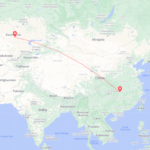



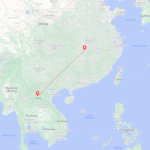


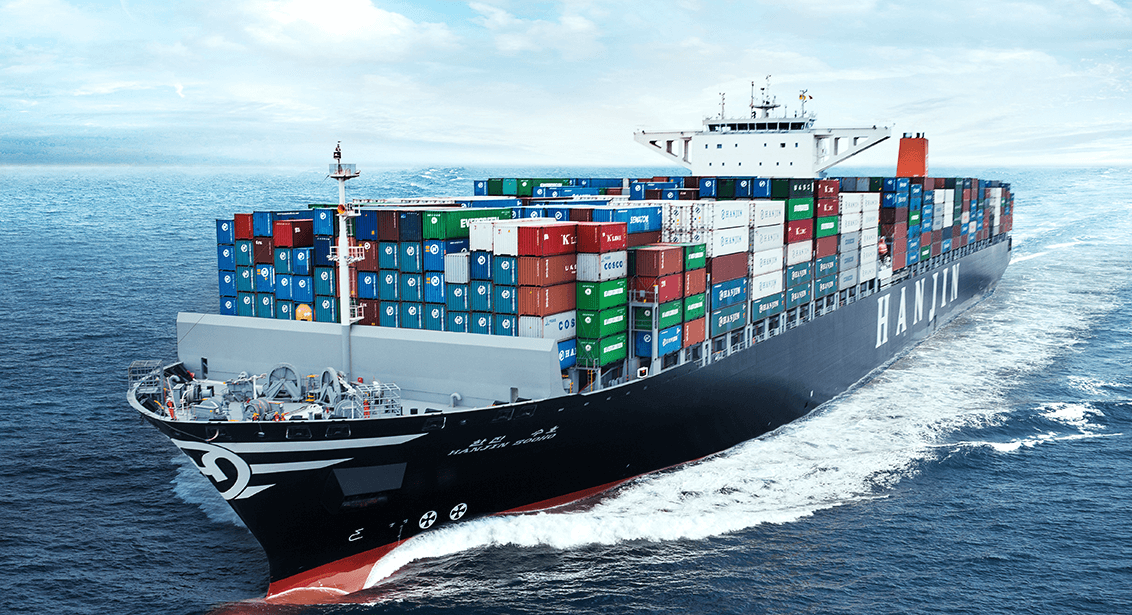
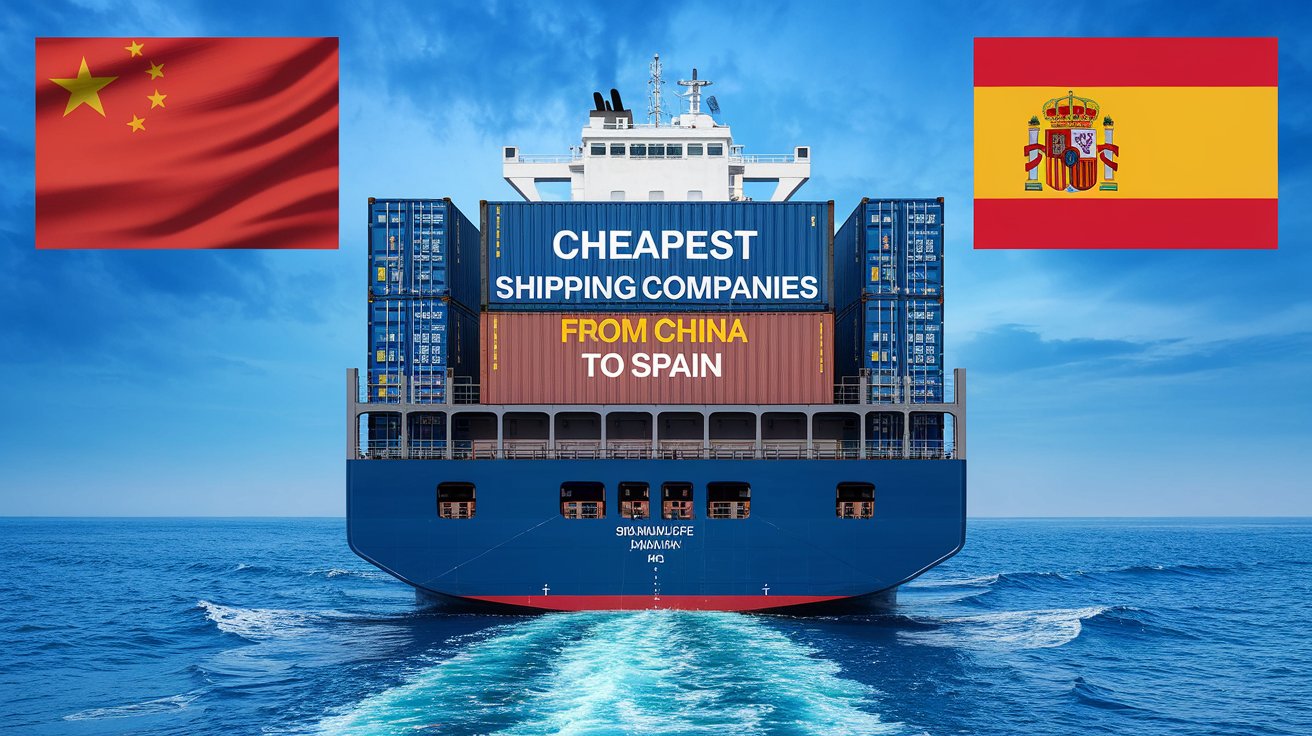
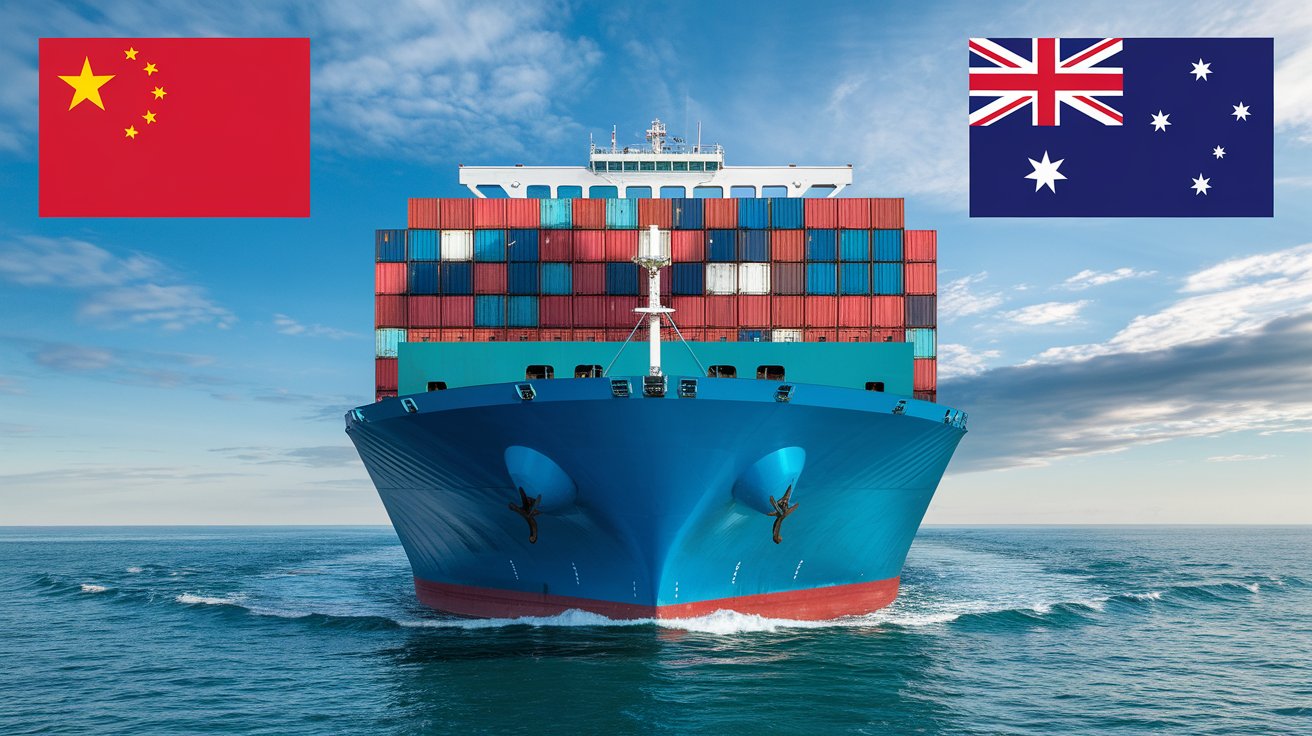
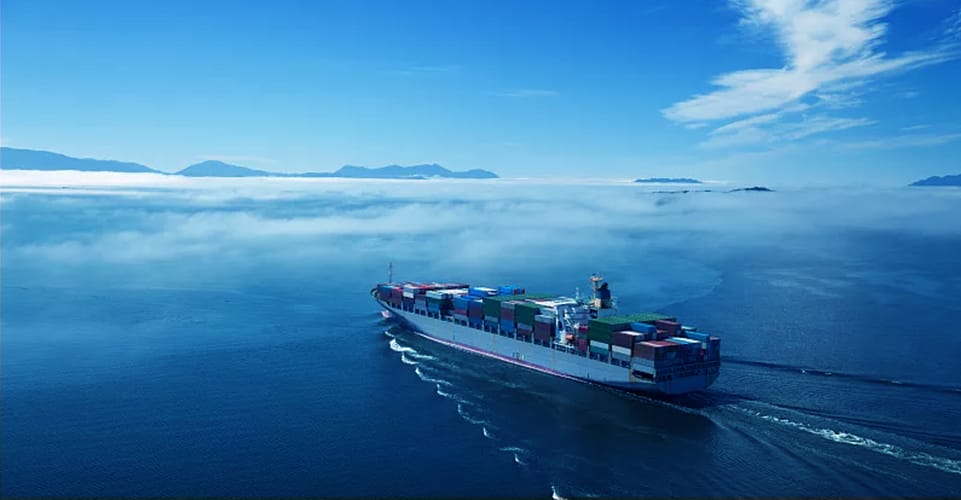






 Afrikaans
Afrikaans Shqip
Shqip አማርኛ
አማርኛ العربية
العربية Հայերեն
Հայերեն Azərbaycan dili
Azərbaycan dili Euskara
Euskara Беларуская мова
Беларуская мова বাংলা
বাংলা Bosanski
Bosanski Български
Български Català
Català Cebuano
Cebuano Chichewa
Chichewa 简体中文
简体中文 繁體中文
繁體中文 Corsu
Corsu Hrvatski
Hrvatski Čeština
Čeština Dansk
Dansk Nederlands
Nederlands English
English Esperanto
Esperanto Eesti
Eesti Filipino
Filipino Suomi
Suomi Français
Français Galego
Galego ქართული
ქართული Deutsch
Deutsch Ελληνικά
Ελληνικά Kreyol ayisyen
Kreyol ayisyen Harshen Hausa
Harshen Hausa Ōlelo Hawaiʻi
Ōlelo Hawaiʻi עִבְרִית
עִבְרִית हिन्दी
हिन्दी Hmong
Hmong Magyar
Magyar Íslenska
Íslenska Igbo
Igbo Bahasa Indonesia
Bahasa Indonesia Gaeilge
Gaeilge Italiano
Italiano 日本語
日本語 Basa Jawa
Basa Jawa ಕನ್ನಡ
ಕನ್ನಡ Қазақ тілі
Қазақ тілі ភាសាខ្មែរ
ភាសាខ្មែរ 한국어
한국어 كوردی
كوردی Кыргызча
Кыргызча ພາສາລາວ
ພາສາລາວ Latin
Latin Latviešu valoda
Latviešu valoda Lietuvių kalba
Lietuvių kalba Lëtzebuergesch
Lëtzebuergesch Македонски јазик
Македонски јазик Malagasy
Malagasy Bahasa Melayu
Bahasa Melayu മലയാളം
മലയാളം Maltese
Maltese Te Reo Māori
Te Reo Māori मराठी
मराठी Монгол
Монгол ဗမာစာ
ဗမာစာ नेपाली
नेपाली Norsk bokmål
Norsk bokmål پښتو
پښتو فارسی
فارسی Polski
Polski Português
Português ਪੰਜਾਬੀ
ਪੰਜਾਬੀ Română
Română Русский
Русский Samoan
Samoan Gàidhlig
Gàidhlig Српски језик
Српски језик Sesotho
Sesotho Shona
Shona سنڌي
سنڌي සිංහල
සිංහල Slovenčina
Slovenčina Slovenščina
Slovenščina Afsoomaali
Afsoomaali Español
Español Basa Sunda
Basa Sunda Kiswahili
Kiswahili Svenska
Svenska Тоҷикӣ
Тоҷикӣ தமிழ்
தமிழ் తెలుగు
తెలుగు ไทย
ไทย Türkçe
Türkçe Українська
Українська اردو
اردو O‘zbekcha
O‘zbekcha Tiếng Việt
Tiếng Việt Cymraeg
Cymraeg יידיש
יידיש Yorùbá
Yorùbá Zulu
Zulu